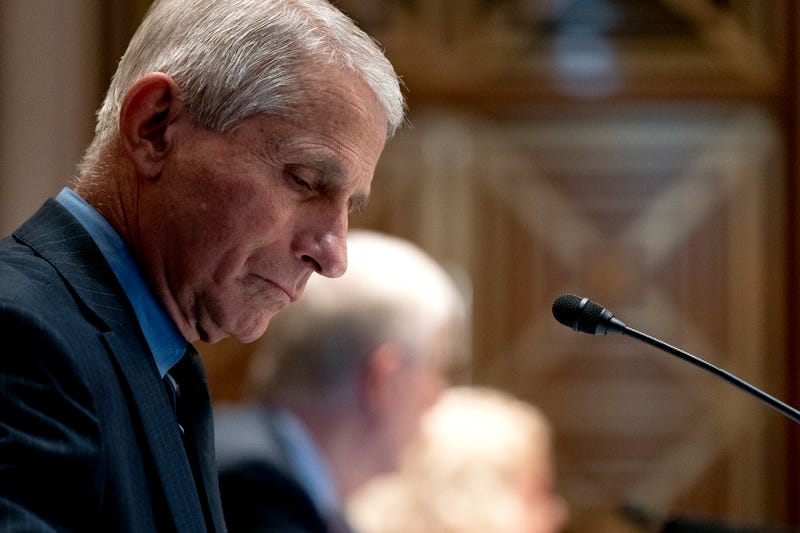
Dr. Anthony Fauci pushed back against critics accusing him of "flip-flopping," arguing that his quintessential function as a scientist is to adjust as he learns more from the available evidence and data.
"It is essential as a scientist that you evolve your opinion and your recommendations based on the data as it evolves," Fauci said on the New York Times "Sway" podcast. "And that's the reason why I say people who then criticize me about that are actually criticizing science."
Listen to "Sway" on the Audacy app.
In the episode "Dr. Fauci Claps Back," host Kara Swisher pressed the chief medical advisor to the president on confusion about mask-wearing recommendations early on in the pandemic. Fauci recalled being in the Situation Room when the White House informed his team there would be a severe shortage of masks and other personal protective equipment. Beyond that, he said there was no evidence yet that wearing a mask outside of a hospital environment "actually worked to protect you."
"People who are giving the ad hominems are saying, 'Ah, Fauci misled us. First, he said: no masks; then, he said: masks,'" Fauci said on the podcast released today, stressing researchers still did not know half of the infections spread by asymptomatic carriers. "That's the way science works. You work with the data you have at the time."
He added, "It was not a change because I felt like flip-flopping. It was a change because the evidence changed, the data changed."
Appointed as director of the National Institute of Allergy and Infectious Diseases in 1984, Fauci has overseen research on preventing, diagnosing and treating viruses such as HIV, ebola, and zika for nearly 40 years.
Swisher also questioned the doctor about his evolving opinion on the origin of the coronavirus and lab-leak theory. Fauci said he feels the theory is improbable, but he cautiously admits it "indeed" needs more investigation.
Facui says he believes being transparent and admitting when he is wrong is essential, especially when it can save lives.
"It isn't a question of being wrong," he said. "It's a question of going with the data as you have, and being humble enough and flexible enough to change with the data."
LISTEN on the Audacy App
Sign Up and Follow Audacy
Facebook | Twitter | Instagram

